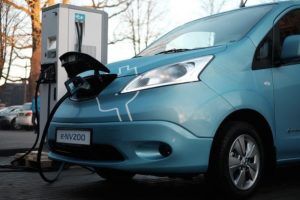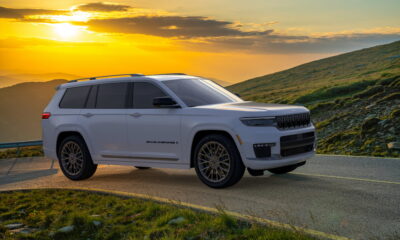

Energy
Incentivizing Greener Vehicle Technology
Hybrid and electric vehicles may be gaining in popularity – they’re predicted to make up 35% of new car sales globally by 2040 – but they’re still far from dominating the roads, even as we continue to worry about the impact of fossil fuel emissions on our environment. That’s why, to get more drivers into these ecofriendly vehicles, savvy lawmakers are offering a range of incentives to help offset higher vehicle costs.
From rebates and tax credits to single-occupant HOV access, there’s determination from multiple sectors to change the way we drive.
One of the main ways that individual states encourage drivers to shift to new hybrid and electric vehicles is by offering tax credits or rebates. Historically, this has meant waiting until it’s time to file your taxes, which may diminish your eagerness to buy one of these vehicles. That’s why Colorado recently shifted to a format that’s more like a rebate upon purchase.
By providing a financial incentive as soon as drivers purchase a hybrid or electric vehicle, this new system helps relieve some of the financial strain associated with a new car, and makes it easier for people to buy into the system. This immediate financial break can also help with the car insurance costs associated with hybrid and electric vehicles. Comprehensive insurance costs more for more highly valued cars, but it’s certainly coverage worth having, as it protects your car from theft, fire, and windshield damage.
Easing the Fuel Burden
The challenge of charging fully electric vehicles in cities with limited hookups may make some drivers feel as though it would be better to wait for further advances in hybrid and electric technology. Why buy a new car and add to the pollution of manufacturing and shipping when you’ll need to re-invest or retrofit it in a few years?
One way around concerns about fuel efficiency is by increasing the use of renewable diesel. However, until recently, almost all renewable diesel suffered from something called a “blend wall.” The blend wall is the limit of how much biofuel can be mixed with traditional petroleum fuels without causing engine problems – the majority of passenger vehicles are certified for a maximum of B5, or a mix that contains only 5% biodiesel.
We may be close to overcoming the blend wall, according to Neste, a European company currently developing NEXBTL. According to Neste, NEXBTL has no blend wall restrictions, but the company will have to work with car manufacturers to make sure vehicles can run effectively on this biodiesel product.
Another benefit is that you might get a decent insurance discount. If you check Zebra.com, you will see that many insurers offer lower premiums to people that own electric or hybrid cars.
Small Satisfactions
Beyond the major financial savings that come from rebates or tax credits, most of the other incentives to drive hybrid or electrical vehicles come from the everyday details – knowing you’re being a good steward of our earth, driving a car with fewer maintenance needs, and enjoying a smooth, quiet ride.
Another perk that many areas are adding to the list is a removal of HOV restrictions – if you’re driving a hybrid or electric vehicle, you may not need anyone in the car to use the carpool lane. This is a nice daily advantage and can cut work commute times, but particularly for hybrids, it does undercut some of the ecological reasons for switching cars.
Ultimately, whatever incentives will get more drivers to invest in hybrid and electric vehicles will benefit our environment and reduce our dependency on fossil fuels, a vital step when car ownership is increasing on a global scale.
Though specific rebates and credits vary by region, there is broad support for making our transportation greener.


 Environment11 months ago
Environment11 months agoAre Polymer Banknotes: an Eco-Friendly Trend or a Groundswell?

 Features10 months ago
Features10 months agoEco-Friendly Cryptocurrencies: Sustainable Investment Choices

 Features11 months ago
Features11 months agoEco-Friendly Crypto Traders Must Find the Right Exchange

 Energy10 months ago
Energy10 months agoThe Growing Role of Solar Panels in Ireland’s Energy Future





























